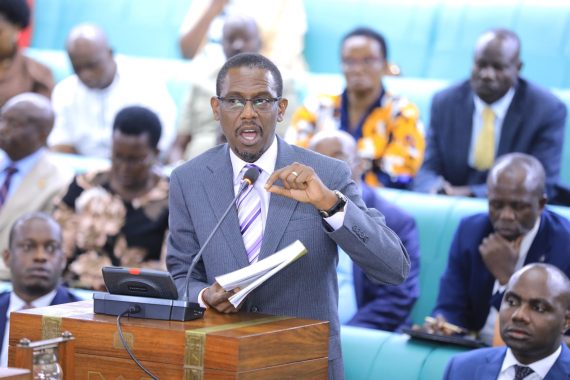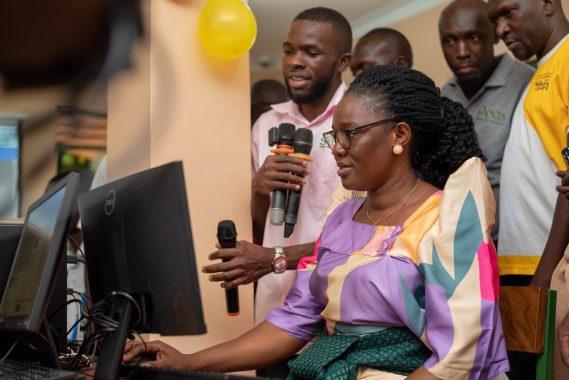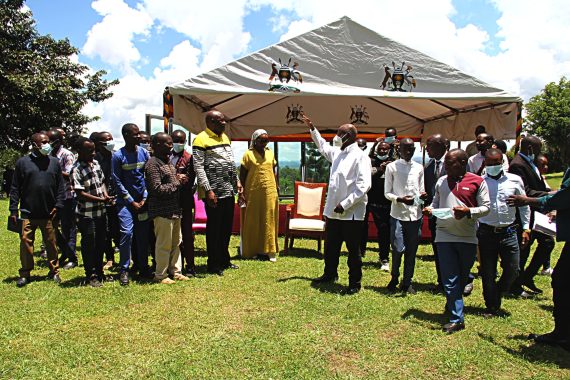A debate ensued in Parliament as opposition MPs criticized the Attorney General, Kiryowa Kiwanuka, over his legal advice regarding the implementation of the recent Supreme Court ruling that dismantled the jurisdiction of the General Court Martial (GCM) over civilian cases.
The MPs questioned the continued detention of inmates on what they described as “expired warrants” and the decision to involve the Directorate of Public Prosecutions (DPP) in transitioning cases from the military court system.
Medard Sseggona (Busiro East) led the charge, arguing that the Supreme Court’s judgment had invalidated all warrants issued by the now-defunct orders of the GCM.
“A person can only be held in prison on a valid warrant. The Supreme Court dismantled the orders of the General Court Martial, which means the warrants upon which these people were arrested have expired,” Sseggona said.

He pointed out specific cases, such as that of Dr. Kizza Besigye and Hajji Obeid Lutaale, whose warrants reportedly expired on Monday. “So currently, for these people or persons being held, on whose orders? On whose valid warrants do they continue to be in prison?” he asked.
Sseggona also criticized the Attorney General’s advice for the DPP to liaise with the GCM to take over cases, accusing the government of putting the DPP on a “fishing expedition.”
“The DPP is empowered under the law to commence prosecutions where there is evidence. But the reverse isn’t true, that the DPP goes around fishing for cases from people who have been conducting business illegally,” he said.
Ibrahim Ssemujju Nganda (Kira Municipality) echoed these sentiments, drawing historical parallels to the regime of former President Idi Amin.
“The last time people were in Luzira on no warrant was after the fall of Idi Amin. I didn’t know that the things done by Amin and his soldiers could be repeated by Kiryowa Kiwanuka almost 40 years later,” Ssemujju remarked.

The MPs’ concerns punched holes in gaps in the Attorney General’s directives, with Sseggona warning that continued detention without valid warrants could violate constitutional rights.
“These actions are not just illegal but undermine the justice system entirely,” he said.
Kiwanuka, in his earlier address, had defended his advice as a transitional measure to ensure proper handling of pending cases.
He argued that the DPP’s involvement was necessary to oversee the prosecution of cases transferred from the GCM.
The Attorney General Kiryowa Kiwanuka on Tuesday faced resistance from opposition legislators in parliament over the action taken by his office following the recent Supreme Court ruling on the trial of civilians in the General Court Martial.
During plenary presided over by the Deputy Speaker of Parliament Thomas Tayebwa tasked the AG to present an update on the judgement following public criticism on the delayed release of inmates being held without trial.
In his submission, the AG stated that in compliance with a Supreme Court judgment issued on 31st January 2025, his office instructed the Uganda Prisons Authority to suspend any further court processes concerning accused civilians previously facing trial in the General Court Martial (GCM).
The Attorney General’s directive stated that the GCM, in coordination with the Prisons Authority, must compile and submit a comprehensive list of all pending civilian criminal cases. These cases will be transferred to civilian courts to determine the appropriate jurisdiction for further handling.
Additionally, the Prisons Authority has been cautioned to exercise patience and avoid processing any accused persons until competent civilian courts are prepared to take over.
“We advise that no action should be taken until the necessary lists are finalized and the appropriate courts assume control,” he stated in his directive
This development has also put pressure on the Directorate of Public Prosecution (DPP) and other key stakeholders to expedite preparations for the transition. T
The Directorate of Public Prosecution (DPP) must coordinate with the GCM and the UPDF to oversee the transfer of pending cases and ensure smooth prosecution.
The Ministry of Defence and Veteran Affairs has been advised to begin drafting amendments to the UPDF Act, addressing limitations exposed by the Supreme Court ruling.












